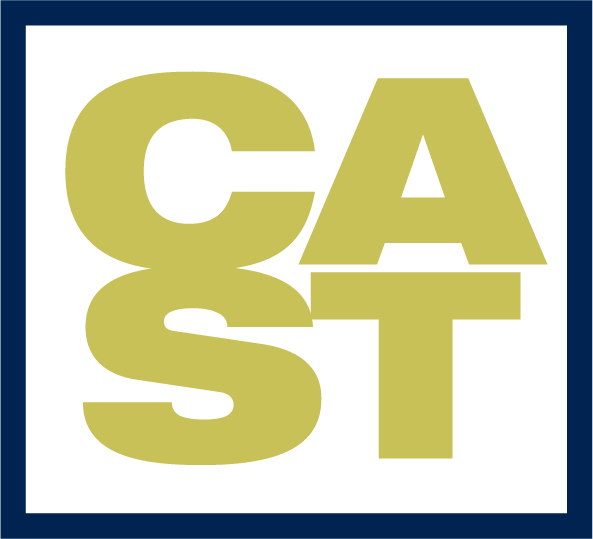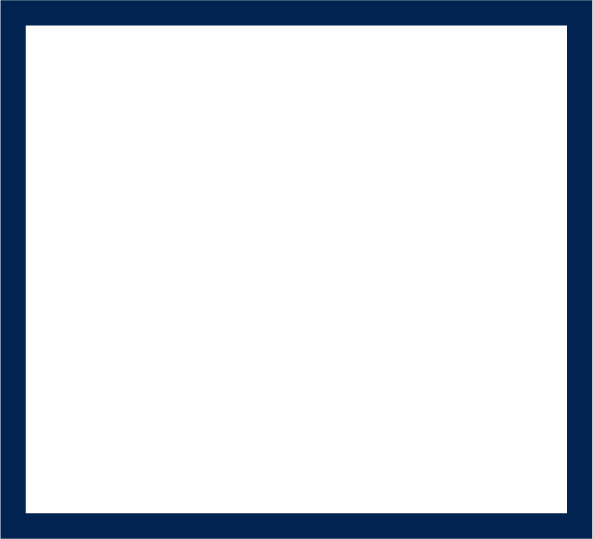
What is CAST?
Coping and Support Training (CAST) is a proven prevention program for middle and high-school-aged youth. It is a 12-lesson skills training program, embedded in a positive-peer group culture, designed for just 6-8 youth. CAST is used across the US and Canada, in schools, community centers, and a wide variety of other youth-oriented agencies.
The CAST group learns to gain competence and support each other in four skill areas:
- Building Self-Esteem
- Setting Goals and Monitoring
- Decision Making
- Personal Control: managing moods, drug use and school smarts
Training & Technical Assistance
How Does it Work?
The CAST Program has been rigorously tested and is included on multiple Evidence-Based Programs listings.
- The CAST program begins with an individual invitation to join. Youth must be offered an option and not mandated to join CAST.
- CAST is conducted in small groups, with a facilitator-to-student ratio of 1:6-8.
- A trained Facilitator leads the CAST group on a weekly or twice-weekly schedule over the course of 6-12 weeks.
- Group structure and process includes student participation and responsibilities for decision making and problem solving.
- CAST is a skills training curriculum embedded in a positive peer group culture.
Please join a Facilitator Training Series to learn all about how and why CAST works!
What are the Goals?
The goals of CAST are to help youth build coping skills, increase time spent in healthy activities, and enhance social support resources. All CAST students are asked to write personal goals related to each of the Program Goal areas:
-
Increased School Smarts (including grades, attendance, and attitude)
- Increased Mood Management
- Increased Drug Use Control (including staying drug free)
Please join a Facilitator Training Series to learn all about how and why CAST works!
Who can Participate?
CAST is designed to serve middle & high school students who:
- Are having a poor school experience
- Are behind in credits, have slipping grades
- Are skipping school or at risk of dropping out
- Report depressed mood and/or have had thoughts about suicide
Pay-Offs…
CAST has been shown to reduce suicide-risk behaviors, depression, hopelessness, anxiety, anger, and drug involvement; while increasing school bonding and social support resources (including family support).
- Increased Mood Management – depression, hopelessness, anxiety, and anger
- Decreased Drug Involvement – alcohol, marijuana, and hard drug use, drug use control problems and adverse drug use consequences
- Decreased Suicide Risk Factors – global suicide risk behaviors, ideation, threats, attempts and positive attitudes toward suicide
- Increased Protective Factors – personal control, problem-solving and coping, family support, and decreases in school problems (dropouts, absenteeism, and dissatisfaction with school)
Testimonials
I have seen middle school kids use the skills to really offer support to each other. CAST has connected kids that would not connect in the everyday milieu and is helping them find connections at school. Kids who appear so different are finding commonalities and developing empathy while becoming more aware of their biases and judgmental ideas.
CAST members are enthusiastic about coming to CAST each session. Here’s just one example: One student began CAST as somewhat of an outsider. He was new to the school and had few friends. He kept mostly to himself and explained during our first session that he didn’t need support from others. He said he preferred to do things himself, without asking for help. By session 7, he was asking for help from the group and providing positive feedback to others. One of his teachers reported to me that he had explained to her how much he enjoyed CAST!
As a new facilitator, I have enjoyed leading CAST with two different groups. I am motivated by the skills CAST provides the students and the effort the students put forth when they begin to experience success.
CAST offers just what we have been looking for in a prevention program for our at-risk students. It is science-based and brief with proven success!
This program is wonderful and implementing it at different ages could really benefit society as a whole.
Many of the students I have worked with have struggled with attendance but at the end of our 12 sessions, I was able to give some group members a reward for perfect attendance – what an accomplishment for them!
[CAST] is a wonderful tool for the district. The curriculum is very thorough and self-explanatory.
This program will be very beneficial in our schools. It includes great tools and design and is purpose driven.
One day after group, a student stayed after to discuss some of the battles she had overcome since the group started. This student had very poor attendance and poor grades due to her lack of school attendance. She was also depressed and disconnected from school, friends, and family. She stayed after to show me her mid-term report which showed she was now a B student that had only missed 2 days in the last 3 months of school! She had also made a few new friends in CAST which she credited for the positive lift in her day-to-day mood. I felt rewarded as a facilitator to watch her positive progression through CAST and to celebrate her individual successes with her.
This program is outstanding and will be super helpful in my work with students and families who are challenged by these issues (mood, drug use, academics).
Program FAQs
What is the difference between the Reconnecting Youth, RY Time and CAST programs?
We get this question all the time: from agencies considering our programs; from sites using one and thinking of adding the other; and from grant writers needing to distinguish between the two programs.
So, what’s the difference? Here are the basics:
Reconnecting Youth (RY) is a semester-long CLASS, implemented in the school, as part of the regular schedule, and is offered for credit and a grade. RY was designed for students at risk for school dropout, and we have an algorithm/formula using referrals and student records to determine who “qualifies”. RY class size should not exceed 10-12 students. RY has a rich evidence-base as a Tier 3 or Indicated prevention program.
Coping and Support Training (CAST) is a 12-session GROUP, which can be implemented in a variety of locations: schools, mental health agencies, faith-based organizations, juvenile detention centers, private practice, etc. CAST groups should have 6-8 youth max. CAST can be offered as one of the following:
Reconnecting Youth for Out-of-School Time (RY Time) is a distilled version of our award-winning Reconnecting Youth Program. Designed to be delivered in just 10 hour-long sessions, RY Time can also be extended to a month, a summer, or even an entire semester, depending on program needs. Any youth (6-12 grade) can participate in groups of no more than 12 students. RY Time provides additional support and resources for students to enhance their social and mental well-being beyond the regular school day.
Perhaps more important is what Reconnecting Youth, RY Time and CAST share in common:
*NOTE an invitation and ability to opt out is essential!
What makes RY and CAST work (keys to success)?
We think the Reconnecting Youth, RY Time and CAST Programs work for a lot of reasons! But if pushed to pick the top four reasons why these evidence-based programs work, we’d choose these:
- The Leader! If your RY or CAST Teacher/Facilitator is a caring, engaged and supportive adult who is passionate about youth and program fidelity, you should have a successful program.
- Positive Peer Culture! The youth invited to be in RY and CAST have a job and agree to it; they are all there to support one another, regardless of their differences or their diverse personal goals. Each youth brings strengths to share with the other group members.
- Skills Training! RY and CAST aren’t counseling groups. They are life skills training courses. Youth learn and practice skills in each session that they apply daily to their real-life situations. These life skills benefit the RY and CAST youth well into their adult lives.
- Developer-sponsored Training! Our trainings are engaging, interactive and practice-focused.
Will RY or CAST work in block schedules?
YES! Both programs are designed for 50-55 minute sessions. But RY and CAST work in different ways.
Let’s look at RY first
Since RY is a school class, it needs to follow the bell schedule, whatever that may be. Sometimes schools have as little as 45-minute periods, sometimes as much as 75-90. If an RY class is scheduled for 3rd period, which meets on a block schedule (e.g., Mon, Wed, Fri for 80 minutes), you can combine two RY lessons into each class session. For those of you who are familiar with the Anatomy of an RY Lesson, you would start at the beginning (Check-In) and teach all the way through one lesson; then start the next lesson at Big Ideas and teach through that lesson. It is wise to allow the students a “brain break” at some point, perhaps midway through.
What about CAST?
If you are implementing CAST in a school (which is only one of many appropriate settings), you simply keep the students together for the length of the CAST session. If you complete the session within 55 minutes, then you can send them back to class for the remainder of the period! Some schools prefer you to pull CAST students out of class for the latter part of a period, which allows them to be present for some of the lesson and get their assignments before leaving for their CAST group.
Can I offer CAST in a setting besides school?
YES! Besides school settings, CAST can be implemented in a mental health agency, faith-based organization, juvenile detention center, private practice, inpatient setting or community agency.
What is an RY or CAST Coordinator?
The Coordinator assures implementation fidelity. A Coordinator supports the Teacher/Facilitator so that the program is delivered as designed, helping the group members achieve their best outcomes.
The RY or CAST Coordinator must have in-depth knowledge of the program; often this is someone who has facilitated the program themselves with success. Additionally, they must possess the skills, knowledge, and authority to support and sustain the necessary program infrastructure; and they must have the time, ability and willingness to provide oversight and supervision of the program.
Forming partnerships within the school and wider community, participating in the development of a Crisis Response Plan and overseeing youth selection, screening and assessment are all important tasks of the Coordinator.
Coordinator Training is highly recommended, and available through RY Inc. For a quick overview of any of our training offerings, review the Training section of our website.

